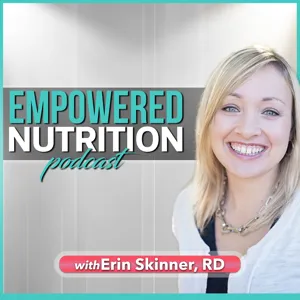Podcast Summary
Understanding Metabolic Health and Pharmacological Options: Improving metabolic health is crucial in preventing and managing interconnected diseases. Lifestyle changes and medications such as SGLT2 inhibitors can play a significant role in achieving optimal metabolic health.
Metabolic disease is interconnected with other types of diseases like cardiovascular disease, neurodegenerative disease, and cancer. It is crucial to improve metabolic health to prevent and manage these conditions. Lifestyle changes play a significant role in improving metabolic health. However, there are also pharmacological options available. SGLT2 inhibitors, Metformin, and GLP1 are some medications that can be used to improve metabolic health. SGLT2 inhibitors specifically target Sodium Glucose Co transporter Protein 2 (SGLT2) in the kidneys, helping to regulate glucose levels. Understanding the basics of these medications and their development can be complex, but visual aids can be helpful. Maintaining good metabolic health and exploring pharmacological options can provide potential benefits for overall well-being.
Kidney's Role in Glucose Regulation and Potential Solutions for High Blood Glucose Levels in Type 2 Diabetes: The kidney plays a crucial role in selectively retaining necessary substances but can also prevent reabsorption of filtered glucose, making it a potential target for managing high blood glucose levels in type 2 diabetes.
The kidney's primary role is not to eliminate bad things from the body, but rather to understand what is good and retain it. As plasma passes through the kidney, it selectively pulls back into circulation the necessary substances like glucose, sodium, potassium, and chloride. However, there is an interesting opportunity here regarding glucose. Although the kidney's main task is not to regulate glucose concentration, it does have the ability to prevent the reabsorption of filtered glucose. By blocking a protein called SGLT 2, more glucose can be excreted in the urine, making it an attractive solution for high blood glucose levels in individuals with type 2 diabetes. This approach is focused on lowering glucose levels and can be used alongside other strategies such as increasing insulin sensitivity or managing insulin itself. Additionally, some drugs are developed based on naturally occurring substances, like fluorescein found in apples, which initially demonstrated glucosuria and became an important diagnostic tool for diabetes in the past.
The Relationship Between Natural Compounds and Drug Development: Nature serves as a valuable resource for pharmacologists, providing a foundation for drug development. Natural compounds like fluorescein and drugs derived from them, such as SGLT 2 inhibitors, offer effective treatments for diabetes.
There is a similarity between naturally occurring compounds and the drugs derived from them. For example, fluorescein, a naturally occurring substance, has a similar structure to SGLT 2 inhibitors, which are used to treat diabetes. These inhibitors have different versions with varying potency and dosing. Furthermore, it is worth noting that some widely used drugs like statins and metformin are also derived from natural sources. This suggests that nature has provided a foundation for pharmacologists in drug development. Additionally, in the discussion of SGLT 2 inhibitors, it is mentioned that a higher dose leads to a greater reduction in hemoglobin A1c, indicating their effectiveness in managing diabetes.
SGLT 2 inhibitors: Beyond Blood Sugar Regulation: SGLT 2 inhibitors have shown potential in reducing risks for heart failure patients, improving cardiovascular outcomes, and possibly reducing blood pressure.
SGLT 2 inhibitors, such as Metformin and Conegaflozin, show promising benefits beyond just regulating blood sugar levels. While Metformin is commonly used for early intervention in type 2 diabetes, SGLT 2 inhibitors have shown greater potential in the scientific community. These inhibitors have been found to decrease the risk of hospitalization and death for heart failure patients, as well as improve cardiovascular outcomes for patients with reduced ejection fraction and preserved EF. Additionally, there may be a correlation between the use of SGLT 2 inhibitors and a reduction in blood pressure, possibly due to the impact on sodium excretion. Although the complex names of these drugs may be confusing, pharmaceutical companies deliberately choose catchy trade names to ensure brand association and prolonged sales.
SGLT 2 inhibitors offer potential benefits beyond diabetes treatment, particularly in heart failure patients.: SGLT 2 inhibitors may have positive outcomes for heart failure patients, even without diabetes, and there is growing interest in their potential cardioprotective effects.
SGLT 2 inhibitors, often used to treat type 2 diabetes, have shown positive outcomes in patients with heart failure, even if they do not have diabetes. The reduction in blood pressure may be one potential reason for this, but there may be other factors at play as well. Additionally, there is growing interest in the potential cardioprotective effects of SGLT 2 inhibitors. Many individuals who are not diabetic are curious about these benefits, similar to the interest in Metformin for its potential protective properties. By becoming a premium member, you can access the complete AMA episode, as well as enjoy exclusive member benefits like comprehensive show notes, monthly AMA episodes, premium newsletters, a private podcast feed, and more. Remember, the information provided in this podcast is for general informational purposes only, and it is essential to consult with healthcare professionals for personalized advice and treatment.





